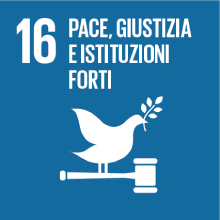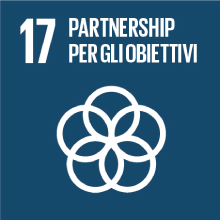HISTORY OF INTERNATIONAL RELATIONS
- Anno accademico
- 2024/2025 Programmi anni precedenti
- Titolo corso in inglese
- HISTORY OF INTERNATIONAL RELATIONS
- Codice insegnamento
- LM3140 (AF:517852 AR:287926)
- Lingua di insegnamento
- Inglese
- Modalità
- In presenza
- Crediti formativi universitari
- 6
- Partizione
- Cognomi A-L
- Livello laurea
- Laurea magistrale (DM270)
- Settore scientifico disciplinare
- SPS/06
- Periodo
- I Semestre
- Anno corso
- 1
- Spazio Moodle
- Link allo spazio del corso
Inquadramento dell'insegnamento nel percorso del corso di studio
Risultati di apprendimento attesi
(a) the consolidation and deepening of critical knowledge of some of the major turning points in the international history of the 20th and early 21st centuries;
(b) a secure knowledge of the literature on international politics and energy issues during the 20th century, with emphasis on the 1970s;
(c) the development of an ability to formulate original and grounded interpretations of the interactions of various international actors with the changing energy landscape of the 1970s;
(d) the development of the ability to critically create, read and interpret a bibliography of international history, and to make critical judgments about international affairs based on sound historical knowledge, beyond the specific subject matter of the course itself;
(e) the development of the ability to communicate one's knowledge with coherence, clarity and precision, and to participate in informed debates about international affairs;
(f) the development of the ability to deepen autonomously one's knowledge in the field of international history.
Prerequisiti
Contenuti
Testi di riferimento
Recommended readings
L. Scott, "International History of the Twentieth Century", in J. Baylis, S. Smith and P. Owens (eds.), The Globalization of World Politics, Oxford, Oxford University Press, 2016, pp. 54-69 (or any comparable text, after the teacher’s approval)
M. Cox, “From the end of the cold war to a new global era?”, in J. Baylis, S. Smith and P. Owens (eds.), The Globalization of World Politics, Oxford, Oxford University Press, 2016, pp. 70-83 (or any comparable text, after the teacher’s approval)
G. Arrighi, “The world economy and the Cold War, 1970-90”, in M. Leffler and O.A. Westad (eds.), The Cambridge History of the Cold War, Volume 3, Cambridge UK, Cambridge University Press, 2010, pp. 23-44 (or any comparable text, after the teacher’s approval)***
D. Basosi, "Oil, Dollars and US Power in the 1970s: Re-Viewing the Connections", Journal of Energy History / Revue d’Histoire de l’Énergie, n. 3, 2020, www.energyhistory.eu/en/node/192, pp. 1-15
D. Basosi, "The decade of ‘the energy transition’: a critical review of the global energy debates of the 1970s”, in S. Gross, A. Needham (eds.), New Energies A History of Energy Transitions in Europe and North America, Pittsburgh, Pittsburgh University Press, pp. 107-118
G. Garavini, "Completing Decolonization: The 1973 ‘Oil Shock’ and the Struggle for Economic Rights", The International History Review, vol. 33, n. 3, 2011, pp. 473-487
G. Garavini, The Rise and Fall of OPEC in the 20th Century, Oxford, Oxford University Press, 2019, pp. 179-215, 221-229
R. Graf, "Making Use of the 'Oil Weapon': Western Industrialized Countries and Arab Petropolitics in 1973–1974", Diplomatic History, Vol. 36, No. 1, 2012, pp. 185-208
R. Graf, "Energy History and Histories of Energy", Docupedia-Zeitgeschichte, 2023, https://docupedia.de/zg/graf_energy_history_v1_en_2023 , pp. 1-48***
L. Maugeri, The Age of Oil, Westport, Prager, 2006, pp. 77-92, 93-102***
F. Parra, Oil Politics, London, IB Tauris, 2004, pp. 7-22***, 175-188***
O. Sanchez-Sibony, “Energy and Soviet Economic Integration”, in E. Bini, G. Garavini, F. Romero, Oil Shock, London, IB Tauris, 2016, pp. 222-244
F. Venn, The Oil Crisis, London, Longman, 2002, pp. 7-20, 113-136
Modalità di verifica dell'apprendimento
The paper should deal with the reactions to the 1973 "oil crisis" by a specific government (chosen in consultation with the teacher). The paper should demonstrate the acquisition of the notions and methodological tools presented in the course, the ability to link the chosen topic to the literature on the "crisis" and other international processes taking place in the 1970s, and the ability to structure a concise review of the "state of the art" on the chosen topic. Specific guidelines for paper preparation will be made available on Moodle during the semester.
The oral exam will include two main questions, aimed respectively at checking the study of the program (critical knowledge of the readings) and at critically discussing the contents of the paper. The first question will contribute about 30% to the final grade, while the paper and second question together will contribute about 70%.
Students who wish to do so may substitute the first question of the oral interview by accepting the grade deriving from a set of in-itinere tests (multiple choice, short open-ended questions) which will take place during the semester (at regular class time). There will be five tests during the semester. The grade is the average of a student’s best four scores. In order for the grade of the tests to substitute the oral question, students must take at least four. It is always possible to reject the results of the tests and opt for the oral question.
In addition, those who wish may present the preliminary results of their research for the final paper in the last weeks of the course, according to a schedule to be decided in class (the presentation will receive a bonus grade between 0 and 1, to be added to the final grade).
open-ended questions) and possibly accepting the resulting average grade (it is always possible to reject the average grade of the in-progress tests and opt for the oral question). In addition, those who wish may present the preliminary results of their research for the paper in the last weeks of the course, according to a schedule to be decided in class (the presentation will receive a bonus grade between 0 and 1, to be added to the final grade).
Modalità di esame
Metodi didattici
Altre informazioni
Obiettivi Agenda 2030 per lo sviluppo sostenibile
Questo insegnamento tratta argomenti connessi alla macroarea "Cooperazione internazionale" e concorre alla realizzazione dei relativi obiettivi ONU dell'Agenda 2030 per lo Sviluppo Sostenibile


